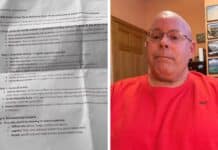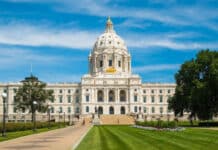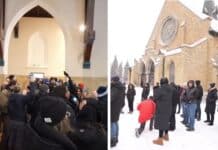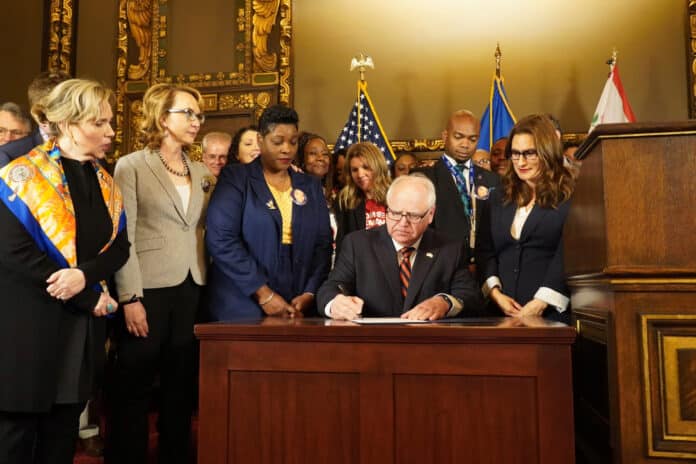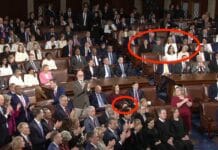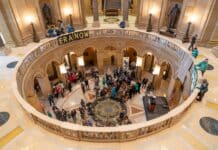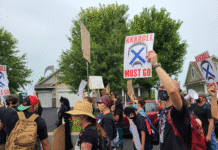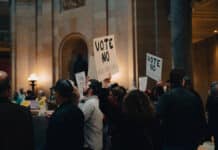(Daily Caller News Foundation) — Significant gun-related legislation and jurisprudence was promulgated by Democrats and left-wing judges in 2023, affecting individuals’ rights to own firearms under the Second Amendment to the U.S. Constitution.
![]()
Amid frequent mass shootings across the United States, left-wing activist groups and Democrats have sought to pass legislation that would restrict the availability of guns to persons by imposing administrative requirements to own them, such as background checks. Many of these were opposed by Republicans and conservative activist groups through litigation, with those measures being as follows.
New Mexico’s suspension of gun possession in Albuquerque
On Sept. 8, Democratic Gov. Michelle Lujan Grisham of New Mexico signed an executive order that banned the possession of firearms outside private residences in Bernalillo County, which covers the City of Albuquerque. The decision was widely criticized, including by several left-wing activists who have previously called for stringent gun control measures, as being unconstitutional.
“I do not believe that the Emergency Order will have any meaningful impact on public safety, but, more importantly, I do not believe it passes constitutional muster,” wrote Democratic Attorney General Raúl Torrez of New Mexico in a letter published on X where he declined to defend the order in court.
“[T]his kind of approach leads to the over-policing of our communities, racial profiling, and increased misery in the lives of already marginalized people,” wrote an official of the American Civil Liberties Union in a statement. Grisham’s order was later temporarily enjoined by a federal court, though she issued another order retracting the prohibition that was not enjoined.
Gavin Newsom’s call for a Constitutional Convention on gun control
Democratic Gov. Gavin Newsom of California has been one of the most prominent proponents of gun control in the United States. In September, the California State Legislature passed a bill at Newsom’s behest calling for a Constitutional Convention under Article V of the U.S. Constitution to consider amendments that would impose greater controls on the availability of guns to private citizens.
“This action is even more urgent as radical judges use a warped interpretation of our Constitution to roll back gun safety laws in California, and across the country,” wrote Newsom in a statement. “In the face of decades of Congressional inaction and unelected judges that are putting Americans in danger, it is time for citizens to stand up for common sense.”
California’s resolution calls for a 28th amendment to the U.S. Constitution that would impose “universal background checks as a prerequisite to purchase or acquisition of a firearm” as well as prohibit “sales, loans, or other transfers of firearms to those under 21 years of age, subject to limited exceptions.” The proposed amendment also mandates a “minimum waiting period” after purchasing a firearm and prohibits the “sale, loan, or transfer of assault weapons and other weapons of war to private civilians.”
The U.S. Constitution permits Congress to call a convention — comprising delegates elected for that purpose — to propose constitutional amendments upon the application of two-thirds of all state legislatures. The constitutional convention provisions of Article V have never been invoked in American history.
California’s enactment of sweeping gun possession restrictions
On Sept. 26, Newsom signed into law several bills that restricted the possession of firearms in the state presented to him by the state legislature.
Among the measures enacted include the raising of the minimum age to purchase a firearm from 18 to 21, a new 11% excise tax on the sale of all guns in the state and a prohibition on carrying guns within 1,000 feet of several properties — such as schools, places of worship, public gatherings and parking lots, among others.
The law was later enjoined by Judge Cormac Carney of the U.S. District Court for the Central District of California on Dec. 20. “[I]ndividuals must be able to effectuate their right to self-defense by, if they so choose, responsibly bearing arms,” Carney wrote in his ruling, which is temporary pending the outcome of litigation against the state.
Washington bans 50 types of firearms classified as ‘assault weapons’
On April 25, Democratic Gov. Jay Inslee of Washington signed into law HB 1240, a bill that would impose a ban on the sale and possession of over 50 types of firearms. The bill also enacted a mandatory waiting period before purchasing a gun, as an effort to deter mass shootings by mentally disturbed persons.
“WA does not and will not accept gun violence as normal. Banning the sale of assault weapons, our bill to enact training requirements and a [waiting] period, and the bill to improve accountability of manufacturers and retailers will save lives,” wrote Inslee on Twitter about the bill.
HB 1240 was accompanied by another measure, HB 1143, which will require purchasers of guns in Washington to undergo a firearm safety training program before obtaining a weapon and will require courts to forward the information of convicted felons to the state to prevent them from purchasing a weapon. The law will go into effect on Jan. 1, 2024.
Minnesota adopts universal background checks and firearm seizure laws
Minnesota, during its legislative session that concluded in May, enacted an omnibus public safety bill that imposed stringent regulations on the possession and acquisition of firearms. The bill was signed into law by Democratic Gov. Tim Walz of Minnesota after passage along party lines by a state legislature entirely controlled by Democrats.
The bill establishes universal background checks for the purchase of all firearms, including between private parties, and requires a permit from local police before obtaining a firearm. The bill also enables police to seize firearms after the issuance of “extreme risk protection orders,” known conventionally as “red-flag laws,” which may be filed by family members or romantic partners of an individual.
The state Senate’s Republican leader called the measure among the “most partisan … in the history of the state.”

